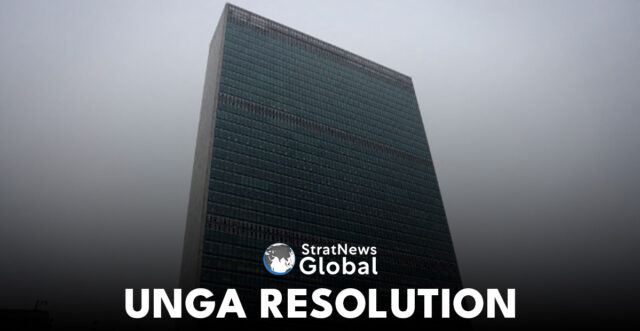In an emergency session on Thursday in New York, the UN General Assembly overwhelmingly passed a resolution calling for an immediate, unconditional, and lasting ceasefire in Gaza.
The move followed the Security Council’s failure to pass a similar resolution last week due to a lone veto by permanent member the United States.
The resolution was backed by 149 Member States, with 12 voting against and 19 abstaining. Among those opposing the resolution were the United States and Israel, who were joined, among others, by Argentina, Hungary and Paraguay.
India, Georgia, Ecuador, Romania and Ethiopia were among the countries abstaining.
End Starvation As Weapon Of war
Brought forward by over 20 countries, it strongly condemns the use of starvation as a weapon of war, demands a full lifting of the Israeli blockade on humanitarian aid, and insists on the protection of civilians under international law.
Although General Assembly resolutions are not legally binding, they carry significant political and moral weight.
On 4 June, the Security Council failed to adopt its draft resolution after a veto by the United States, a permanent member.
Meanwhile, famine conditions continue to threaten lives across Gaza, and reports persist of civilians being killed or injured while trying to access food at distribution points operated independently of the UN but supported by Israel and the US.
UNGA Steps In As UNSC Stalls
Opening the special session, General Assembly President Philémon Yang said that “the horrors in Gaza must end” after 20 months of war. He criticised the Security Council’s ongoing paralysis and inability to fulfil its core responsibility to uphold peace and security.
He called the situation on the ground “unacceptable”, highlighting the deprivation of food, water and medicine for civilians, the continued captivity of hostages, and the need for urgent international action.
Yang noted that next week’s high-level meeting in New York on implementing a two-State solution, chaired by France and Saudi Arabia, saying it would offer a chance for renewed commitment towards peace in the Occupied Palestinian Territory.
(With inputs from IBNS)





